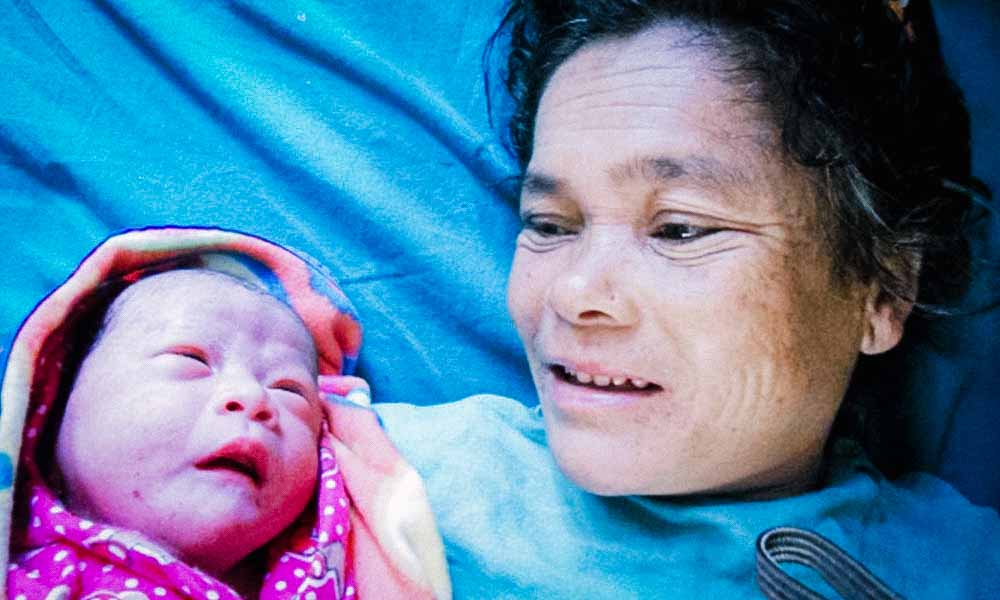Every year around half a million women, mostly from developing countries, die in childbirth and almost three times as many are left with injuries, predominantly preventable, as a result of labour. One of the most devastating of these injuries is an obstetric fistula.
During a difficult and often unsuccessful birth a hole develops in the bladder leaving the woman, already exhausted and grieving, leaking urine. She is continuously wet, her clothes stink, and her skin breaks out in sores. She is seen as unfit for society and is often faced with a life of isolation and shame.
Today, to mark International Women’s Day, we would like to share with you the story of Suwa, one of the many stories of women with restored hope and life after fistula surgery.
Suwa came to a gynaecology camp run by International Nepal Fellowship in 2006. We couldn’t help her then but her story led to the development of INF’s work for women suffering from obstetric fistula.
Suwa lives in Mugu, a very poor and remote district in the mountains of Nepal. Married at 13 years of age, she delivered her first baby when just 14. As was the custom, she was alone in the animal shelter. Her labour was long and difficult and after three days of pain her baby was born dead. The delivery caused terrible injuries. Her legs were so weak that for many months she could not walk properly and her bladder was damaged, as a result she could not stop the flow of urine. Suwa’s husband left her. For fourteen years she had lived alone and struggled to support herself by labouring.
Back in 2006 we did not have the skills or resources to help her. In 2008 Dr Shirley Heywood spent one month in Ethiopia, receiving training in surgery for complicated obstetric fistula.
In 2009 the first fistula repair camp was held in Surkhet and Suwa attended. The operation was difficult but successful and Suwa returned to Mugu well and happy. She still had to rely on heavy labour to earn her living. Carrying heavy loads so soon after the surgery caused the fistula repair to breakdown. A year later Suwa returned to the next fistula camp and again surgery was successful. This time she stayed with an older sister, who lives in Surkhet, for several months and had the rest she needed. During this time her sister arranged a new marriage for Suwa.
A few years later Suwa came again to our fistula camp, not because her fistula had returned but because she was pregnant and wanted this child to be born safely. The hospital in Mugu still lacks facilities and skilled manpower to perform a caesarean section. INF cared for her through the remainder of her pregnancy. When the baby was due she was delivered by caesarean section in the Surkhet Hospital. Today, Suwa, her husband and little daughter are now home in Mugu.
INF and obstetric fistula
INF has joined in the fight to end fistula in Nepal. Since 2009 INF has run fistula camps in the remote Western districts of Nepal; healing women and helping to combat the stigma they carry. INF has also been running fistula awareness-raising programmes for communities and health workers in rural health posts. This has seen an increase in the number of patients attending camps. As most of these patients are very poor INF provides free treatment, travel and food costs for the patient and one care-taker. Hundreds of patients have been treated despite the lack of facilities and shortage of beds in the Surkhet hospital.
INF has planned for a fistula centre in Surkhet where women can receive the best possible treatment, be counselled and cared for throughout the year by well- trained and dedicated staff, where those cured can come back to deliver their babies in safety, and where doctors and nurses can come for training.
PRAY | GIVE | GO | SHARE – Please pray for the work of INF with Nepali women and especially for those recently served by the Fistula Camp in Surkhet. To make a donation to support INF’s life-changing fistula treatment and care for Nepali women please visit www.inf.org/give



